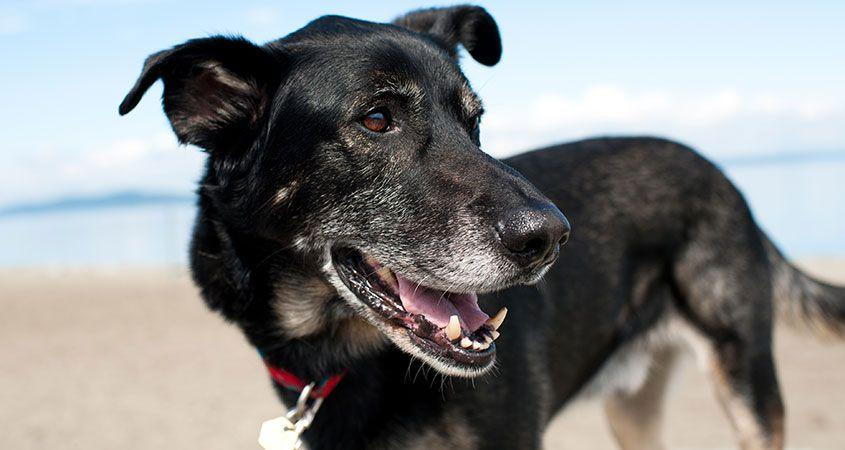November is National Adopt a Senior Pet Month. There are nearly 7 million pets living in shelters across the United States, and a majority of these pets are senior pets. Many families shy away from senior pets because they want a puppy or a younger dog that brings less responsibilities. However, senior pets are just as deserving of love and are often very affectionate pets. For the families that open their homes to senior pets, they should do research to ensure they are capable of caring for them. Senior pets come with a different set of responsibilities that pet owners need to know about. Here are the top five health concerns to be aware of before adopting a senior pet.

Arthritis
As our pets get older, the cartilage between bones gets thinner and softer. If that cartlidge gets damaged, it can inflame the joints around it, causing arthritis. Arthritis can cause swelling and pain in dogs. To help prevent and treat arthritis, you should watch for the symptoms. They can include limping, reluctance to move, and avoidance of stairs. Treatments include medication, as well as diet change and exercise.
Cancer
Here at Phoenix Vet Center, we see more cases of cancer as dogs are getting older. The two most common forms of canine cancer are lymphoma and osteosarcoma. To spot the signs of developing cancers, watch your pet for weight loss or loss of appetite, lumps or bumps that are changing in size, and sores that don’t heal. Our doctors will assist you on deciding on the correct treatment plan.
Cognitive Dysfunction
Just as we see in senior humans, our senior pets can suffer from dementia. This happens to many pets and is usually just a part of getting older. Cognitive Dysfunction usually presents itself by memory loss, like forgetting favorite toys, or housebreaking techniques. Other symptoms to watch for are a compulsive behavior, such as pacing and walking in circles. With a consistent routine, your pet should have no problem welcoming old age, even if dementia sets in.
Dental Disease
The importance of brushing your pet’s teeth daily is ever present as they age. Periodontal disease is one of the most common dental diseases for pets of all ages. As our pets get older, their risk of dental disease increases. Symptoms to watch for include loss of appetite, picking up food and dropping it and trouble chewing. The best way to prevent dental disease is by starting a dental hygiene routine that works for you and your pet.
Failing Vision
Blindness might seem like it greatly affects your dog’s day to day life, but it doesn't have to. If you have a senior pet or if you’re adopting one, we always tell our clients to watch for signs that the eye might be failing. If it is caught early enough we can either slow it down, or start teaching your pet how to go about living with reduced vision. The signs to look for include bumping into things, falling, dilated pupils, and sometimes irritated eyes. Cataracts, which first presents itself by a cloudy film covering the eyeball, can also lead to blindness and affects many senior pets.
As you can see, senior pets require more work and more time than younger pets. They also offer a lot of love in return. This November, if you and your family are considering adopting a new pet, consider bringing a senior pet home. If you have any questions about your senior pet’s health, please contact us on our website, or call us at 602-559-5500.



